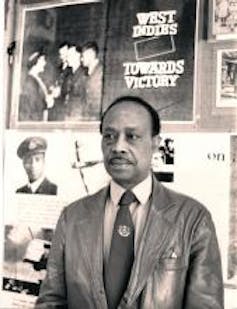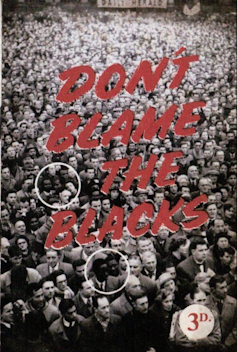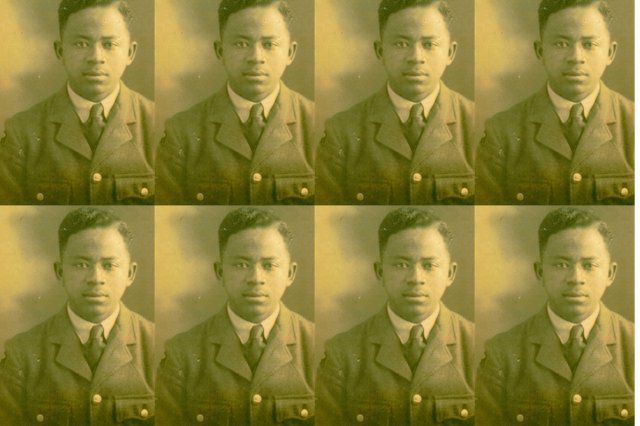Located in the heart of Brixton, London, an area that instantly brings to mind the capital’s Black community, is the national Black Cultural Archives (BCA). Founded in 1981, the BCA is the only national heritage centre dedicated to collecting, preserving and celebrating the histories of African Caribbean people in Britain.
Housed in the former Raleigh Hall, a striking Georgian townhouse in Windrush Square, it hosts a range of temporary exhibitions about the Black British experience and prominent Black Britons. BCA’s work has been important in remembering the people who shaped Black British history – but mainly Black British history in London.
Around the country, there are stories of individuals who worked tirelessly for their communities. However, many of them remain hidden within the folds of history because the UK lacks regional archives that celebrate or even document their contributions as much as those who fought in London, Birmingham and Bristol.
There are a handful of archives starting to do this important work. Nottingham Black Archive (NBA) is dedicated to collecting, preserving and celebrating the histories of people of African and Caribbean descent in the city.
Two such histories are those of activist and publishers Laurent Phillpotts and Oswald George Powe who contributed much to lives of Black people in Nottingham but also in the UK as a whole.
Nottingham Black Archive
The name Claudia Jones is pretty well known. Jones was a prominent activist and founded the West Indian Gazette in London in 1958. However, few know of Jamaican born Laurent Phillpotts, because his activism was in Nottingham.
Phillpotts produced the first Black weekly newspaper The Colonial News in 1956, predating Claudia Jones’ by two years. The Colonial News provided information about what was going on in the Caribbean and reported on the lives of its diasporic community in Nottingham.
Aside from The Colonial News, little is known of Phillpotts’ earlier activist work in Nottingham, where he resided for seven years after the second world war.
Phillpotts fought hard against the discrimination Black people experienced in housing. At the time there existed a colour bar in the UK, which was a policy held by many institutions that meant Black and Asian people were stopped from entering pubs, bars, restaurants and where landlords refused to rent to particular immigrants.
This was something he experienced too having been charged at the Nottingham Magistrates court in 1952 for keeping a disorderly house and fined for selling cigarettes and alcohol illegally. He vehemently denied these charges, stating that he ran the property as a hostel and social club. He argued that finding accommodation for Black people was difficult, living conditions were substandard, and that there were few places Black people could socialise because of “colour bar” discrimination.

He subsequently held interviews with social workers hoping to develop a chain of hostels to alleviate the poor living conditions of the ex-servicemen in Nottingham. These would also be a place for the community to socialise. By 1956, Phillpotts had set up a hostel for African and Caribbean ex-servicemen in agreement with Nottingham Council of Social Service.
When Phillpotts left Nottingham to join the Mirror Newspaper Group and the Printer Compositors’ Union in the early 1960s, he left behind a legacy of how to protest for change, skills he brought with him to London.
Oswald George Powe
Similarly, the activism of Oswald George Powe, a second world war radar operator, born in Jamaica in 1926, is largely unknown but has left a long-lasting impact on Black people in Nottingham.
Powe was the author of Don’t Blame the Blacks, a seminal publication that argued for an examination of the complex relationship between Britain and its Commonwealth citizens.

Powe was a keen labour rights activist and in 1956, Powe started a campaign against Raleigh Industries, one of the world’s oldest and best-known bike brands, to change their policies concerning Black workers. The campaign lead to greater equality in the workplace and Raleigh eventually became one of the largest employers of Black people in Nottingham.
He became leading figure in many other campaigns including the 1960s Anti-Colour Bar Campaign, which was set up in Nottingham to challenge the discriminatory practice of a local inn that refused to serve Black people. He was instrumental in the work of the Campaign to Abolish Special Officers for Coloured People in 1964. The campaign was founded to challenge the work of Nottingham City Council that sought to create a buffer between themselves and the Black community by appointing a welfare officer to deal with complaints.
He provided valuable advice to his countrymen and women on their immigration rights and was one of the central individuals involved in founding the African Caribbean National Artistic Centre (ACNA), in St Anns, Nottingham. ACNA remains one of the oldest Black community centres in the country. It housed one of the first supplementary schools in the city and developed a programme of arts and educational activities to bolster the education of young people and adults. Powe also worked towards institutional reform becoming one of the first Labour Councillors in the County in an almost all-white area in the 1960s.
In 2011, Powe began working with Nottingham Black Archive and made significant donations relating to the history of Black community activism and organising in Nottingham, including examples of Black print culture dating back to 1956. However, for all his community activism, he has received scant acknowledgement outside the city.
The stories of people like Powe and Phillpotts, people who have been unstudied and whose contributions have been neglected, are important.
Archives like NBA can capture the regional diversity and specificity of Black histories in different communities around the country. Mining local history can offer insights into how groups mobilised for protest and became absorbed in politics informing our present and future. This work can also help us map and give detail to the experiences of African Caribbean people adding to the knowledge we have about Black British history.

